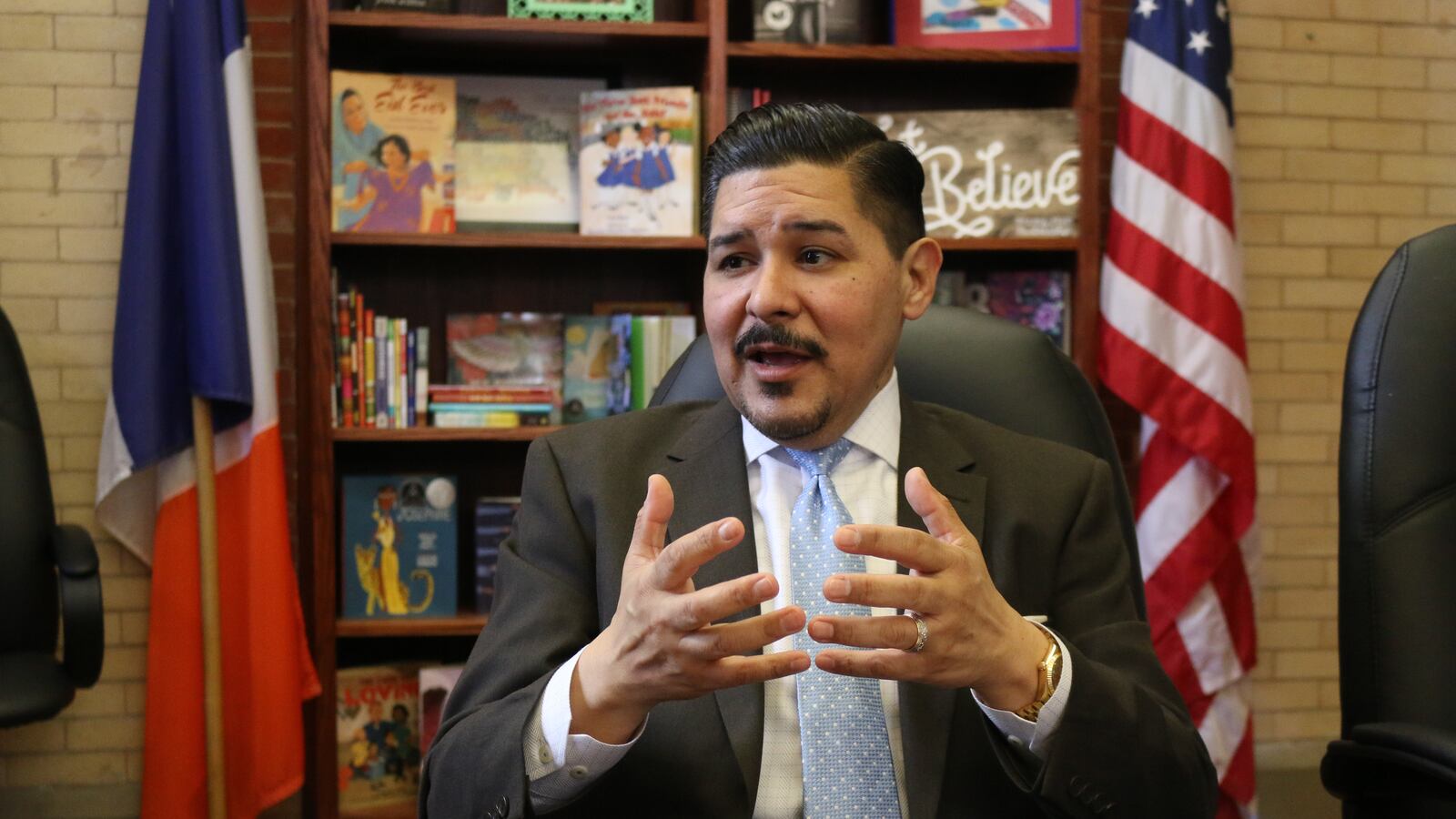Schools Chancellor Richard Carranza’s plan to roll out tests to gauge student progress throughout the school year is raising eyebrows among elected officials, union leaders, and testing critics.
The chancellor reiterated his support this week for “formative assessments” — which he has said would be offered four times a year — to help the education department understand whether students are mastering material across the system in “real time,” allowing officials to direct extra help to schools where students are struggling. After this story published, an education department spokeswoman, Danielle Filson, said the frequency of assessments has not been set.
“We have to have a systematic approach to really dipstick the academic health of our students in all of our schools,” Carranza said, noting that the city may use “two or three” of them system-wide (officials said a final number has not been determined). The results could be used to assign coaches or additional resources to schools, he added, and the city plans to begin with a smaller group of schools this year.
But the department has offered few specifics about the content of these new tests, who will create them, what subjects they will cover, what grades they’ll be used in, and even whether schools will be forced to use them. Top union officials have raised concerns the exams will be of little use because schools use a wide range of curriculum and department officials do not centrally track what choices schools make. It’s not clear what curriculum the tests would be based on.
“How do you use a standardized formative assessment when you don’t have any sort of standardized curriculum?” said Michael Mulgrew, president of the United Federation of Teachers, the city’s teacher union. “You don’t even know what you’ll be measuring.”
Students in grades 3-8 already take standardized state tests every year to measure their proficiency in reading and math, but the results are released well after the school year is over, meaning educators don’t learn their students strengths and weaknesses until they’ve already moved on.
City officials say more regular assessments can help give educators, superintendents, and even the chancellor a more up-to-date picture of student progress. David Hay, the education department’s deputy chief of staff, said the city is still working out key details, but emphasized that about 1,200 of the city’s roughly 1,700 district schools already use assessments to measure student learning throughout the year.
“I think one of the misnomers here is that people think it’s new,” Hay said. “We’re not getting in the way of the good work that’s already happening in schools.”
Hay said the city doesn’t plan to spend additional money on the assessments and the goal is not to use them to evaluate teachers or students.
Department officials plan to hold regular “EduStat” meetings to discuss the results from those assessments, and other data sources such as school surveys and state tests. The city plans to hire 10 people to help develop the EduStat system and has budgeted $1.7 million this fiscal year for it, according to city council documents.
But concern about these assessments has spread quickly, especially among testing critics who believe that students already take too many exams. At a city council hearing this week focused on “breaking testing culture,” department officials brought up their plan to deploy more formative assessments.
“The irony was not lost on me that at my hearing on a hyper-testing culture in our school system, the education department drops this announcement of a new assessment,” said Mark Treyger, chairman of City Council’s education committee.
“I offered a low-cost solution” to evaluating student progress, Treyger added, “it’s called a cell phone or an email and you can contact an educator and simply ask them. That does not require millions of dollars or a fancy rollout.”
Carranza is already pushing back against criticism over additional testing. “This could be swallowed up as, ‘well, the chancellor is in favor of more testing.’ No, I’m not,” Carranza said. “But as a chancellor, I need to know as well, are we on track?”
There are some indications that more regular student assessments can boost learning. One study in Indiana found that regular interim assessments in grades 3-8 led to higher scores on state math and reading exams. But at least one large school district, Boston Public Schools, is going in the opposite direction and recently placed a moratorium on district-mandated tests, including interim assessments.
Lynette Guastaferro, executive director of the nonprofit Teaching Matters, said rolling out more regular “low-stakes” tests could be beneficial, especially in early grades when reading instruction is crucial to later academic success.
“The system currently has no way of really knowing who is on track for reading failure until third grade,” said Guastaferro, whose organization has partnered with dozens of schools in the Bronx to help improve reading instruction.
“The question is, can they come up with a formative assessment that’s really going to inform teaching that is better than the state tests and not overwhelm schools with yet another assessment,” Guastaferro said. If not, “I think there’s a big chance that it could just lead to more testing.”


